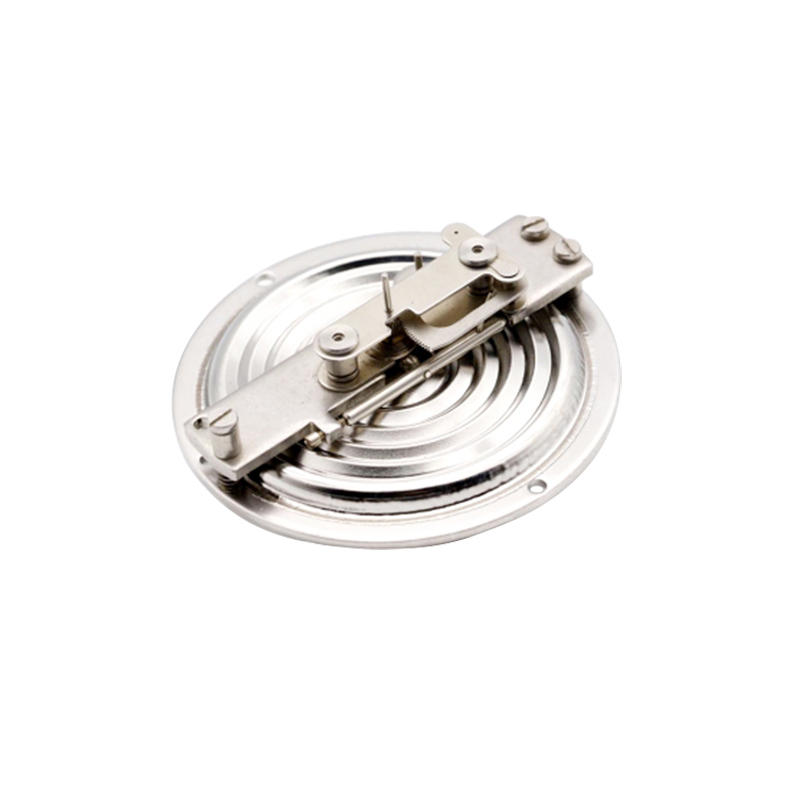
Oct . 14, 2024 21:24 Back to list
Leading Manufacturers of Remote Diaphragm Seal Pressure Gauges for Accurate Measurements
Understanding Remote Diaphragm Seal Pressure Gauges and Manufacturers
In the world of industrial measurement, precision and reliability are paramount. One of the vital instruments in this domain is the pressure gauge, which is essential for monitoring pressure levels in various applications. Among the various types of pressure gauges, remote diaphragm seal pressure gauges stand out due to their unique design and functionality, making them indispensable in many industries.
What Are Remote Diaphragm Seal Pressure Gauges?
Remote diaphragm seal pressure gauges are specialized devices used to measure pressure in challenging environments where traditional gauges would fail. The primary function of these gauges is to isolate the sensing element from the process fluid, ensuring that aggressive or corrosive substances do not impact the gauge’s performance. This is achieved through a diaphragm that separates the pressure being measured from the internal mechanisms of the gauge.
The diaphragm is typically made from a durable material that can withstand high pressures and corrosive environments. The pressure from the process fluid acts on the diaphragm, which then transmits the pressure to a fluid-filled capillary tube connected to a remote pressure gauge. This design allows the gauge to be located away from the harsh conditions, providing accurate readings without compromising safety or reliability.
Key Applications
Remote diaphragm seal pressure gauges are widely used across various industries due to their versatility. Common applications include
1. Chemical Processing In chemical plants, processes often involve highly corrosive substances that can damage traditional gauges. Remote diaphragm seals protect the gauge, ensuring accurate readings without contamination.
2. Food and Beverage The food processing industry requires instruments that can handle sanitary conditions. Diaphragm seals used in these applications are designed to be cleanable and hygienic, meeting strict regulatory standards.
3. Oil and Gas This industry deals with high-pressure applications and requires robust instruments capable of withstanding abrasive materials and harsh environments. Remote diaphragm seals are perfect for these challenging conditions.
4. Pharmaceuticals In the pharmaceutical sector, where contamination can lead to significant risks, remote diaphragm pressures gauges provide a way to monitor pressure safely and effectively.
remote diaphragm seal pressure gauge manufacturers

5. Water Treatment These gauges are also applied in water treatment facilities where materials must be resistant to corrosion and clogging.
Selecting the Right Manufacturer
When choosing a manufacturer for remote diaphragm seal pressure gauges, several factors should be considered
1. Reputation and Experience Look for manufacturers with a proven track record in producing high-quality pressure measurement instruments. Experienced manufacturers often have extensive knowledge of different applications and materials required for various environments.
2. Quality Standards Ensure that the manufacturer adheres to international quality standards, such as ISO certifications. This ensures that the gauges are tested, reliable, and safe for use.
3. Customization Options Different applications may require specific features such as unique materials, pressure ranges, and sizes. A good manufacturer should offer customization options to better suit your operational needs.
4. Technical Support and Service Reliable technical support and after-sale services are crucial when dealing with industrial instruments. A manufacturer that provides comprehensive support ensures you can address any issues that may arise promptly.
5. Cost Effectiveness While quality should be the primary concern, it’s also essential to find a balance between cost and performance. Compare prices among different manufacturers and consider the total cost of ownership rather than just the initial purchase price.
Conclusion
Remote diaphragm seal pressure gauges play a critical role in various industries by providing accurate pressure readings in challenging environments. Their unique design allows them to operate effectively under extreme conditions, making them an essential tool in ensuring safety and efficiency. When selecting a manufacturer, consider their reputation, quality standards, customization options, technical support, and pricing. By doing so, you can ensure that you’re investing in the best technology available for your pressure measurement needs, leading to enhanced operational performance and reliability.
-
High-Precision Mass Diaphragm Pressure Gauge - Reliable & Durable Solutions
NewsJun.10,2025
-
Explain Diaphragm Pressure Gauge Expert Guide, Top Manufacturers & Quotes
NewsJun.10,2025
-
Affordable Differential Pressure Gauge Prices in China Top Manufacturers
NewsJun.10,2025
-
Reliable Water Fire Extinguisher Pressure Gauges for Safety
NewsJun.10,2025
-
Durable Diaphragm Protection Pressure Gauges Get Quote
NewsJun.09,2025
-
WIKA Differential Pressure Gauge with Switch Reliable Monitoring & Control
NewsJun.09,2025
